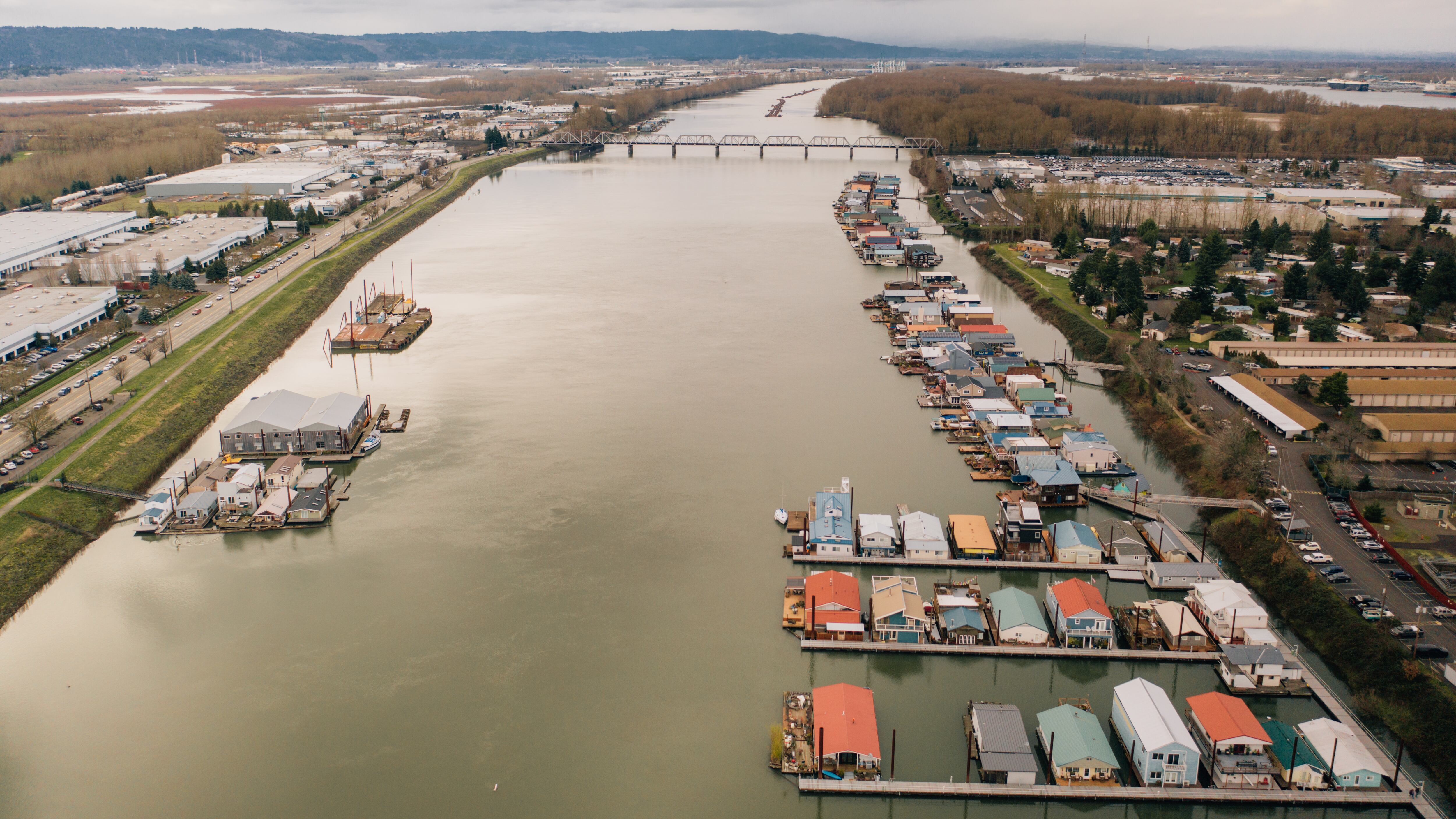A $150 million bond measure that put Gov. Tina Kotek in an awkward position after she implored local governments to create no new taxes will appear on the May ballot.
On Wednesday afternoon, the 17-member board of the Urban Flood Safety & Water Quality District voted to send the bond measure to the May ballot to fund upgrades and renovations to the levee system that runs along the Columbia River. Those upgrades are necessary for the levees to remain accredited by the federal government; if levees lose accreditation, thousands of businesses and homeowners along the river would have to buy pricey flood insurance. That’s not to mention the obvious danger of having a subpar levee system: It creates the possibility of it failing in a natural disaster, like when the New Orleans levees broke during Hurricane Katrina and the deluge left devastation that’s still felt today.
The water district had been working on the bond measure for years and had largely come to an agreement by last fall that it would send a $195 million bond to the May 2024 ballot. The clock was ticking: The feds agreed to contribute $100 million to the levees project only if the district presented a funding plan to the feds by spring 2025.
But as WW reported last week, those plans were thrown into the shredder when Gov. Kotek asked local governments in December to impose no new taxes for three years to ease the tax burden on Portlanders, which has climbed in recent years thanks to voters’ willingness to pass taxes for social programs like homelessness and climate preparedness.
That put the district in a difficult position. It had been relying on the support of Kotek and at least the neutrality of the city’s chamber of commerce, the Portland Metro Chamber, to pass the bond.
It also put Kotek in a tough spot. Just two months earlier she’d asked that local officials show restraint in imposing new taxes (much to the delight of the Portland Metro Chamber). Now, Kotek had to find a way to support the levees bond without looking like a hypocrite. To let the bond flounder would garner the ire of entities along the Columbia River—including Pacific Power and the Port of Portland—which would be forced to pay for exorbitantly priced flood insurance should the bond fail.
For nearly two months, Kotek, the district and the chamber negotiated a deal: lower the bond from $195 million to $150 million, make a good-faith effort to convince the Oregon Legislature to chip in $45 million in funding for the project, and delay the issuance of bonds for as long as possible to adhere to the three-year tax moratorium proposed by Kotek in December.
The metro chamber, specifically, told the district it would actively oppose a $195 million bond measure. It would only consider supporting the bond at $150 million, or remaining neutral, based on an upcoming vote by its board.
On Wednesday, the district’s 17-member board voted 14-0, with three abstentions, to send the $150 million bond to the May ballot.
Environmentalists on the board voiced strong opposition to the agreement reached by the metro chamber, the governor’s office and district leaders in a series of closed-door meetings.
“Literally years of work were upended by a poorly conceived mandate to have no new taxes for three years,” said district board member Bob Sallinger, who serves as urban conservation director for Willamette Riverkeeper. “It’s particularly troubling that many of the entities sitting at this table who negotiated the $195 million goal were also in those close-doored meetings with the governor developing the no new tax mandate.”
Heather King, executive director of the Columbia Slough Watershed Council, who also serves on the water district’s board, slammed what she called “backdoor politics from forces outside of the board” that “pushed us back over a month in our process and served to silence the work that had been done that got us to an agreement at $195 million.”
The District did vote to include an amendment that ensures $27 million of the bond is used for environmental protections.
The board of the Portland Metro Chamber will vote whether to endorse the bond in March. If less than two-thirds of the board approves the bond, the chamber will remain neutral on it. If more than two-thirds of the board approves, the chamber will endorse the bond and campaign for it.

